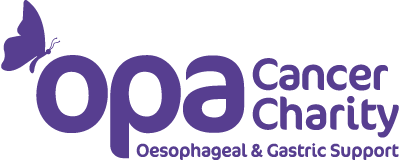What would you do if you had recurring muscle aches a few times each month that you could manage with over-the-counter medication? Ignore it, right? It’s just a nuisance. What if on occasion those pains were so severe that you lost sleep, missed work, or even cancelled important plans? Still just a nuisance?
One in three American adults suffer from such a nuisance – heartburn – and they suffer monthly and they need an effective heartburn treatment. Twenty percent of all adults lose sleep, miss work, and change their plans due to heartburn symptoms. The incidence of people suffering from these symptoms is increasing at a rate of 30% every decade.
For many, a condition called gastroesophageal reflux disease, or GORD, causes these symptoms. Heartburn, that burning sensation in the chest and the feeling of fullness that often results from eating too much, is the most common symptom of GORD, but some also experience regurgitation, difficulty swallowing, a persistent cough, and/or hoarseness. Over time, GORD symptoms can become more and more frequent – and much more severe. Many medical experts view reflux disease as an epidemic, yet most sufferers continue to think of this as a nuisance. How do you get rid of heartburn? We suggest you start by understanding the four common myths about heartburn first.
Here is what you need to know:
Myth #1: Food is the reason for heartburn.
Heartburn is just a result of what we eat, right? WRONG!
Heartburn is a symptom of reflux disease, a progressive, long-term condition caused by a weak lower Oesophageal sphincter, or LES. The LES is a ring of muscle in the lower end of the Oesophagus just above the stomach. It acts as a valve, opening to allow food to pass into the stomach and then closing to prevent the contents of the stomach from flowing, (or “refluxing”) back into the Oesophagus. Because the contents of the stomach are highly acidic, reflux can irritate the lining of the Oesophagus and cause the painful symptoms many sufferers know all too well.
Malfunction of the LOS can happen for a variety of reasons – overeating, obesity, smoking, or excessive drinking. When it happens on occasion, reflux usually has no long-term consequences. Over time, though, the more you reflux, the weaker the LOS becomes and the more you damage the Oesophagus. Reflux disease develops when the LOS no longer functions as an effective barrier. Reflux disease can lead to complications such as inflammation, erosion of the lining of the Oesophagus, narrowing of the Oesophagus, Barrett’s Oesophagus (a pre-cancerous condition), and Oesophageal cancer.
Myth #2: Heartburn is just a nuisance.
No one ever died from heartburn, right? WRONG!
Oesophageal adenocarcinoma, a type of cancer of the Oesophagus, is directly linked to reflux disease. In fact, reflux disease is the only cause of this type of cancer. The number of Oesophageal cancer cases has grown more than 600 percent since 1975, making this deadly disease the fastest growing type of cancer in the United States. When charted against the incidences of all other cancers, Oesophageal cancer is in a league of its own. Sadly, Oesophageal adenocarcinoma is also one of the most lethal types of cancer. The overall likelihood of surviving five years is only 10-15 percent. This year alone, approximately 20,000 deaths will result from reflux-induced Oesophageal cancer.
Myth #3: Today’s heartburn treatment meds cure reflux disease.
Over-the-counter and prescription medications stop the reflux, right? WRONG!
Many times when a patient experiences the symptoms of reflux disease, he simply purchases one of the many medications available over-the-counter at a drug store. If he complains to his doctor, the doctor will likely prescribe a proton pump inhibitor, or PPI, such as Prilosec, Prevacid, or Nexium for heartburn treatment. Any pharmaceutical heartburn treatment works by reducing the amount of acid produced by the stomach, which helps minimize or even eliminate heartburn symptoms, but they don’t stop the reflux.
Reducing heartburn doesn’t mean that the reflux disease is cured. Unfortunately, even when taking PPIs and other acid reducing medications, the reflux continues! You just can’t feel it. Furthermore, it can continue to damage and deteriorate the LES. The disease progresses even though the symptoms aren’t apparent. Treatment with PPIs does not prevent the complications associated with reflux disease, and the conditions can still progress to Barrett’s Oesophagus and cancer.
Myth #4: PPIs can be taken with no risk as long as necessary.
Those PPIs must be safe since they are sold over the counter and don’t require a prescription, right? WRONG!
Consumers spend more than $24 billion worldwide each year on PPIs ($14 billion in the US annually), looking for relief from their reflux symptoms. As a heartburn treatment, PPIs have helped millions of people manage their symptoms, but there are risks that users must understand.
Reflux disease is a chronic, progressive disease, so once PPIs are started, use typically continues on a daily basis indefinitely. Studies have shown that long-term daily use of these drugs may be correlated to an increase in the incidence of several conditions:
- Increase is Clostridium difficile infections (C difficile) – FDA warning
- Malabsorption of magnesium – FDA warning
- Malabsorption of calcium (broken bone concern) – FDA warning
- Increased risk of pneumonia – estimated 30% increase in risk
- Increased risk of heart attacks – estimated 20% risk increase
- Increased risk of chronic kidney disease – estimated 28% risk increase
- Increased risk of kidney failure – estimated at 98% risk increase
- Increased risk of dementia – estimated 42% to 52% risk increase
- Increased risk of campylobacter enteritis – estimated 370% risk increase.
- Increased risk of e.coli infection – estimated at 300% risk increase.
- Increased risk of stroke – estimated at between 30% and 94% for high dose users.
- Increased risk of hospitalization for infectious gastroenteritis – estimated at 70% more risk.
PPIs are also known to interact with other drugs. The most important of these is Plavix, a blood thinner used for prevention of heart attacks and strokes.
What’s most concerning is that several studies have demonstrated that 30 percent of PPI users don’t even have reflux. That means that millions of people are at risk for these drug-related side effects when they don’t even need the medication.
PPIs do have a role in the management of reflux disease, but they must be used carefully as a maintenance medication and only under the care of a well-informed physician. Never take over-the-counter PPIs for more than 14 days without consulting a physician. And remember, even when they are used appropriately to treat reflux disease, PPIs simply control the symptoms of the disease. They don’t stop or cure reflux, they don’t reverse the damage to the LES, and they don’t stop reflux disease from progressing.
Fact #1: You can manage your reflux disease
There must be something that can be done to stop the progression of reflux disease, right? RIGHT!
The good news is that, although reflux disease cannot be reversed, most people in the early stages of the condition can effectively manage their disease. By creating an action plan and following it, most can find relief for their symptoms AND keep their GERD from getting worse. Here is what we recommend you consider:
- Work closely with a GERD expert to confirm your condition and learn about all your treatment options
- Manage your body mass index (BMI) to 24 or less
- Adopt a GERD-friendly diet
- Make all the necessary lifestyle changes
- Use the least powerful drugs only as necessary that result in satisfactory symptom control
- Experiment with natural home remedies to determine if any work for you.
- Consider antireflux surgery if the above changes do not provide adequate symptom relief
If you’re suffering from reflux disease, your first step should be to learn where you are in the progression of the disease. Use RefluxMD’s GERD Stage Finder to help you determine your stage and then download your personalized 18-page report to learn more about your treatment options. Only then can you identify the steps to take to manage your condition and design a personalized reflux disease management plan. We are here to help you throughout your process to find your path to relief and good health.
The important question isn’t how to get rid of heartburn, it’s how to stop reflux disease. Don’t be discouraged. The reality is that you are in control, you are not alone, and you don’t have to suffer.
This article is from Reflux MD – https://www.refluxmd.com/four-myths-heartburn-treatment/


